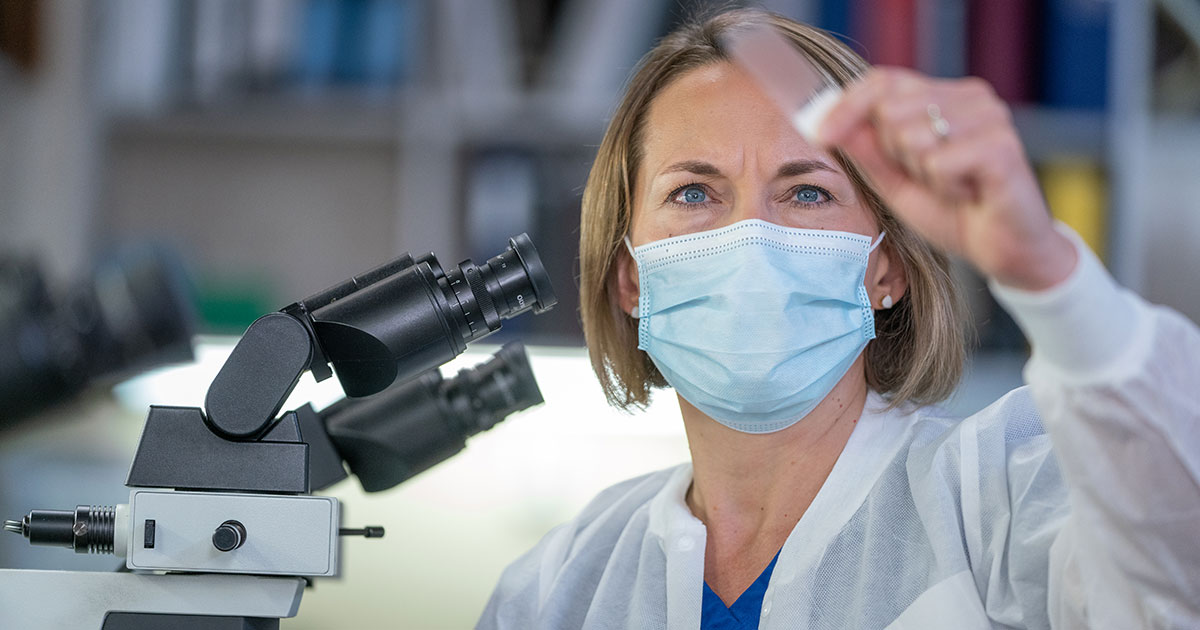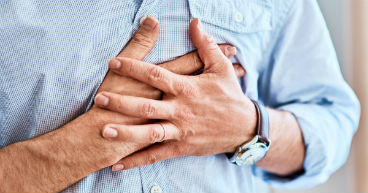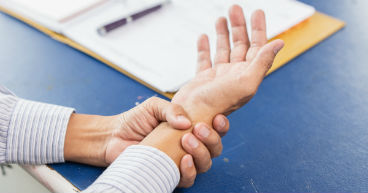
If you’re a cancer patient, you know that fighting the disease often isn’t enough. You also need to manage the side effects of the disease and its treatments, some of which may lead to other illnesses or conditions. This is especially important during the COVID-19 pandemic.
One common side effect of cancer or cancer treatment that patients should be especially vigilant about is neutropenia, a condition characterized by an abnormally low level of white blood cells called neutrophils. Because the body doesn’t have enough neutrophils to destroy harmful bacteria, viruses and other foreign invaders, a person who is neutropenic has an increased risk of developing an infection. Neutropenia may develop suddenly (over a few hours or days), or gradually (lasting for months or years). The longer neutropenia lasts and the lower the neutrophil count, the greater the risk of developing an infection.
What causes neutropenia?
Cancer treatments, particularly chemotherapy medications, are a common cause of neutropenia. Although chemotherapy is used to destroy cancer cells, it may also damage normal cells in the process, including neutrophils. When these infection-fighting white blood cells are used up or destroyed faster than the bone marrow can make new ones, neutropenia may result.
Other possible causes of neutropenia include:
- Other cancer treatments, such as radiation therapy or stem cell transplant
- Blood cancers, such as leukemia and lymphoma
- Some drugs, such as antibiotics
- Certain diseases or disorders, including congenital disorders and aplastic anemia
- Age
Signs and symptoms of neutropenia
A fever of 100.5°F or higher is often the first sign of an infection and may also be a sign of neutropenia. Most infections occur in the lungs, mouth, throat, sinuses and skin.
Other symptoms of neutropenia may include:
- Fatigue, body aches
- Chills and/or sweating
- Sore throat, cough or shortness of breath
- Mouth sores/ulcers
- Nasal congestion
- Abdominal pain
- Diarrhea or sores around the anus
- Redness, swelling or pain around a wound or sore
- Frequent urination or burning during urination
- Unusual vaginal discharge or itching
Treating neutropenia
It’s important to talk to your care team right away if you develop a fever or infection before, during or after your cancer treatment. Neutropenia may need to be treated before cancer treatments can continue. Your doctor may also reconsider treatment dosage amounts in order to better manage the condition.
Treatment for neutropenia includes strategies to avoid infections, detect infections early and help restore immune system function. Treatment depends on the cause and severity of the disorder. People who have mild neutropenia may not need treatment if the bone marrow recovers by itself.
If chemotherapy causes neutropenia, neutrophil levels often return to normal when treatment ends. Also, when neutropenia is caused by cancer itself, treatment of the underlying disorder may resolve the neutropenia.
Here are some steps to take to help prevent or manage neutropenia:
Be aware of the signs of infection. During cancer treatment, be alert to early signs of infection, especially fever. A fever may be a sign of a dangerous situation. When your neutrophil count is low, check your temperature twice a day (avoid rectal thermometers). If you develop a fever, let your doctor know right away. Notify your health care team if you notice other signs of infection, such as fatigue, sore throat, shortness of breath, redness, pain, swelling or a sore/wound that doesn’t heal.
Keep track of your blood counts. During cancer treatment, your health care team will monitor your blood cell counts. You may want to keep track of this information as well. Record your blood counts in a log so you know when your neutrophil count is low and you need to take extra precautions. If your white blood cell count becomes very low, your doctor may prescribe growth factors to raise your counts before you resume chemotherapy.
Wash your hands often. Hand washing is an important way to prevent infection. Wash your hands after using the bathroom, shaking hands, coughing or sneezing. Encourage the other members of your household to do the same.
Avoid contact with sick people. Until your counts have fully recovered, you may help prevent infection by avoiding large crowds of people, such as in shopping malls or other enclosed public areas. Avoid contact with people who are sick with colds, viruses or other infections, or who have recently received virus-based vaccines. Also, do not share food, drinking glasses, utensils or personal hygiene products.
Practice good oral hygiene. Good dental hygiene during and after cancer treatment, including proper cleaning of the mouth and teeth, may help reduce complications, such as mouth sores and infections. Use a soft-bristled toothbrush to prevent cuts, and rinse your mouth often with sterile water or a bland, non-irritating solution. Your dentist may offer guidance on how to safely keep your mouth clean when your blood counts are low.
Maintain proper nutrition. A healthy, well-balanced diet may help the body tolerate cancer treatments, fight infection and rebuild tissue. Food safety is also very important when your neutrophil count is low. To reduce infection risk, avoid raw or undercooked foods, including meats, seafood, eggs, vegetables or unpeeled fruits. Also, eat or drink only pasteurized juice, milk, yogurt, cheese or other dairy products. A registered dietitian may help develop a meal plan tailored to your needs.
Use safety measures. Use caution to avoid cuts, sores, burns or other irritations or injuries. Wear protective gloves while doing housework or gardening and avoid sunburn. Avoid places where dust is being blown into the air (e.g., construction sites). Be careful when using sharp objects, such as scissors or knives. Use an electric razor to avoid cuts. Avoid contact with stagnant water (e.g., vases, humidifiers or denture cups). Do not handle animal waste, which means avoiding tasks like changing the cat litter and cleaning bird cages or fish tanks.
Maintain a healthy lifestyle. Try to maintain a regular sleep schedule (go to sleep and wake up at the same time each day). Make sure to drink plenty of fluids to prevent dehydration. Also, try to stay as active as possible. A rehabilitation therapist may help determine the type and level of physical activity that is safe and appropriate for you. Depending on your condition, your health care team may want you to limit certain activities, such as intercourse, particularly if you are severely neutropenic.
Manage stress. Cancer and its treatment may cause a great deal of stress. Ongoing stress may weaken your immune system and make you even more susceptible to infection. It’s important to find ways to reduce stress, such as with relaxation techniques, distraction and meditation. A behavioral health therapist, spiritual counselor and/or support groups may help you manage stress as well.



